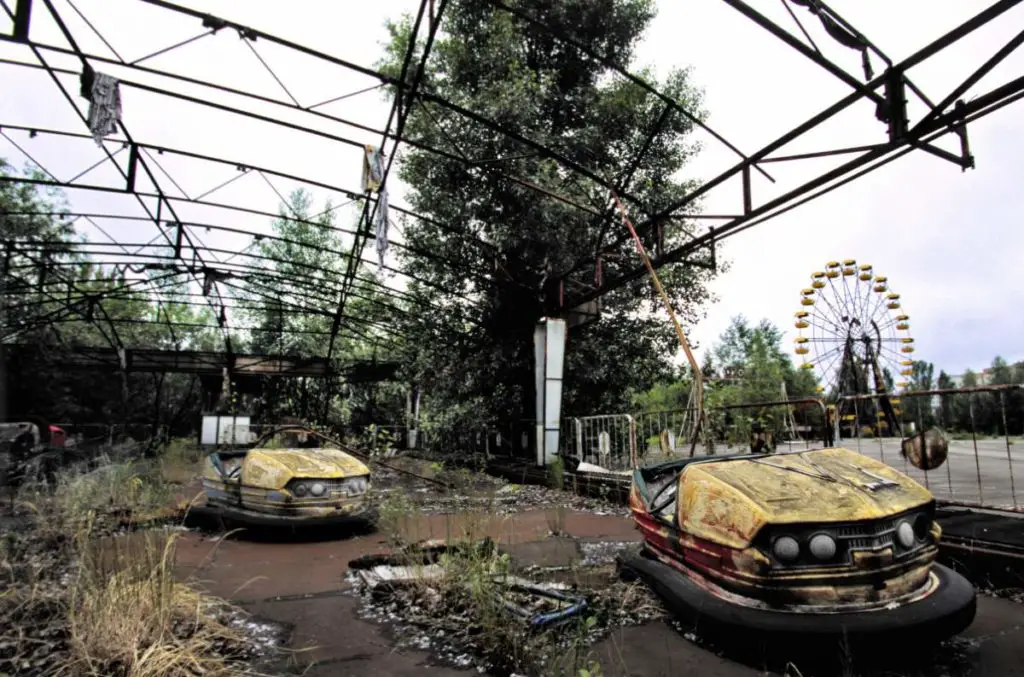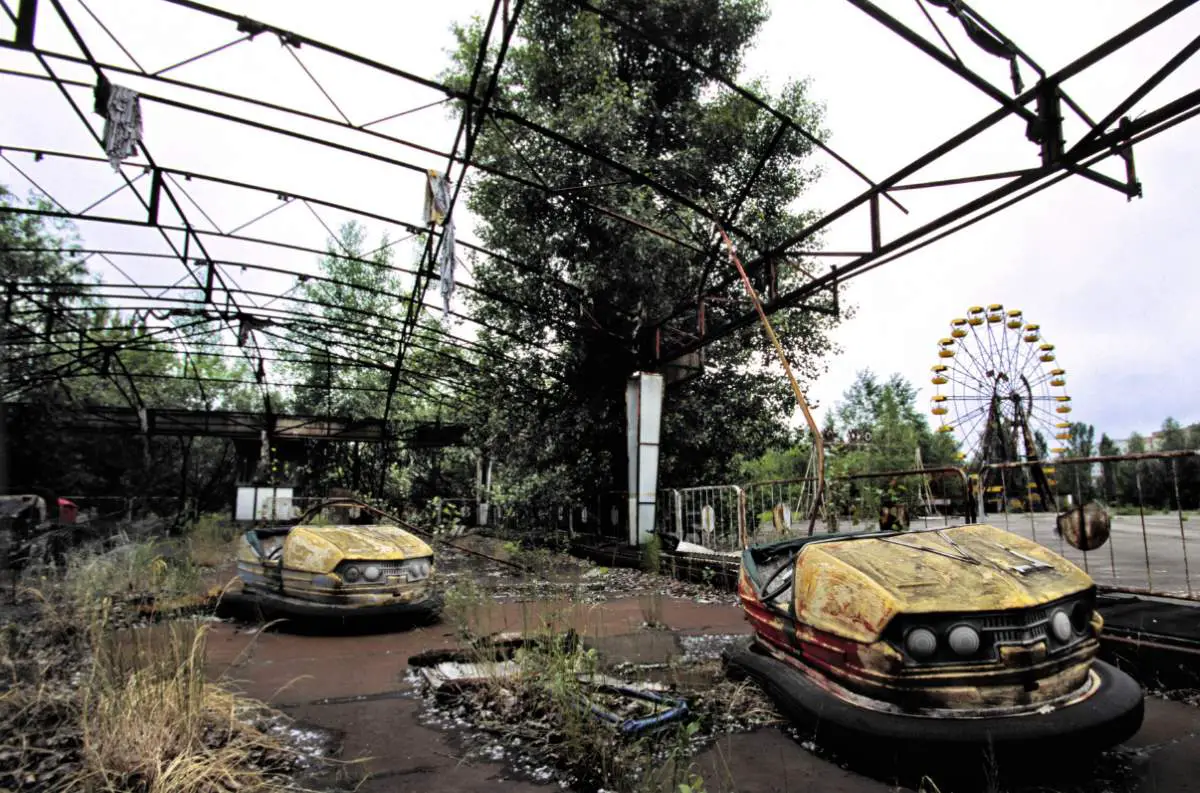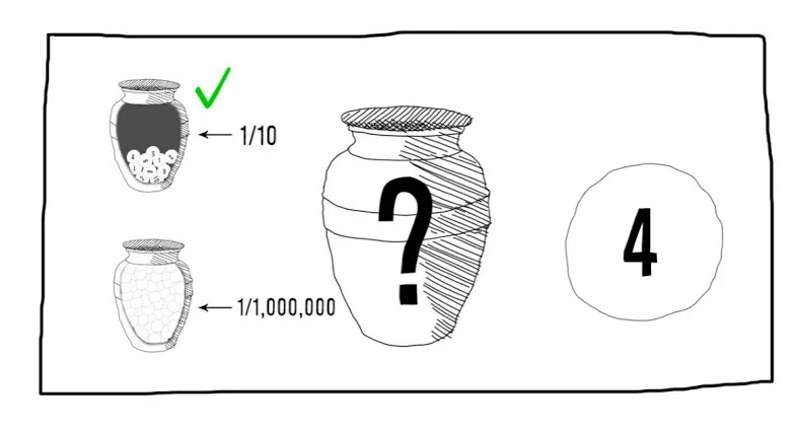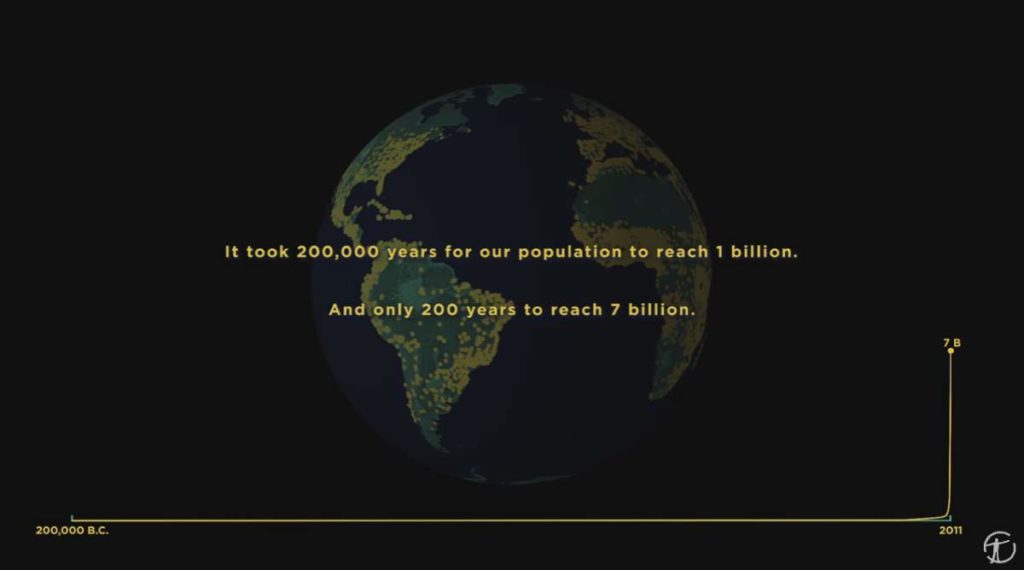In the last few thousand years, humans have had a powerful impact on Earth. Within a geological blink of an eye, we exploded out of Africa to colonize virtually every inhabitable space on the planet. We dammed the rivers, domesticated animals, deforested many areas, changed the chemistry of the atmosphere and the seas… the list goes on. But, what would happen if humans became extinct in the future?
One may think “humans are so intelligent, so it’s very unlikely that

According to the Global Catastrophic Risks Survey published by the Future of Humanity Institute of Oxford University, human’s risk of extinction before the year 2100 is 19%! (see the video below published by Michael Stevens – the YouTuber known as Vsauce). If it seems unlikely and pessimistic to you, please read on (or watch the video).

The Doomsday Argument
Imagine a giant urn that contains either 10 balls (numbered 1 to 10), or a million balls (numbered 1 to 1,000,000). You don’t know which is the case. And you are allowed to pull out one ball.
You pull out the ball and it is the bull having number 4 on it. Which one is more likely, there are 10 balls or a million balls in the urn?
The answer is obvious. It is very, very likely that there are 10 balls in the urn.

By analogy, think of yourself as a numbered ball. You are a human who knows approximately what your birth number is – and it’s probably somewhere around 100 billion. That’s how many other humans were most likely born before you were. And you didn’t decide to get that number, it is “random” in nature. So, just like the number for a ball, you are a random sample from the set of all humans who will ever live.
The “doomsday argument” points out that from 200 billion people, there’s a 50% chance that a randomly chosen person like you will be born in the first one hundred billion.
If there will be, let’s say, 10 trillion humans, that probability would be only 1% (the chance of any given human, like you, would happen to be born within the first one hundred billion).

So, either you are very special to be born so improbably early in the story of humanity, or your birth number is to be expected because there won’t be tens of trillions of humans. Human extinction will be sooner rather than later.
Please keep in mind that there are many counter-arguments against the doomsday argument, which was developed by the Canadian philosopher John Andrew Leslie (born August 2, 1940).
The argument was also independently discovered by John Richard Gott III (born February 8, 1947
To read about these arguments, see the “Counter-arguments against the doomsday argument” section below.
What if humans became extinct?
Anyway… Let’s return to the subject. What would happen if humans became extinct? The video below, published by the AsapScience channel answers that very question.
- Billions of cows, pigs, chickens, and sheep would starve, or get hunted by carnivores, including domesticated dogs and cats. But, in the long run, domesticated dogs and cats would be outcompeted by their wild counterparts, wolves, coyotes, and wildcats.
- Animals and insects that depend on humans, such as rats and cockroaches would suffer drastic population declines.
- Most cities would be wiped out by the fire. Streets would be overtaken by plants and trees.
- After 100 years all the humans are gone, most wood structures would be gone, and anything made of steel – from buildings to cars and bridges would follow them soon. Because without proper maintenance, steel quickly reacts with oxygen in the atmosphere and returns to its native form iron oxide or rust.
- After a few hundred years, most species of animals, especially fish – at least the ones we haven’t driven to extinction would have bounced back to the levels before human evolution. But their distribution would remain altered – like camels in Australia. It’s even possible that in some parts of the world, escaped zoo animals could form new wild populations – like lions on the Great Plains, North America plains.
- The chemical bonds that hold together plastic or vulcanized rubber are immune to most of the digestive enzymes of bacteria. And unlike metals, plastics don’t rust or corrode. Hundreds of millions from now, alien geologists from outer space may be surprised to find sedimentary rocks full of tiny carbon-based particles that were once part of rubber tires or plastic bags.
- The magnetic radiation we created from our radios, satellites, and phones will continue their journey forever. Maybe some extraterrestrial intelligence can learn once humans were existed somewhere in the universe, for a long time ago.
Why would humans go extinct? This isn’t the subject of this article, but you can see the video below where Nick Bostrom from the Oxford University Future of Humanity Institute talks about the threats that our species face, and what we can do about them.
Counter-arguments against the doomsday argument
- Probability Theory and the Doomsday Argument by William Eckhardt (July 1993) on Jstor.org.
- Doomsday Argument rebuttals on W
ikipedia
Read More
- Future of Humanity Institute (Oxford University)
- Existential Risk Prevention as Global Priority: Nick Bostrom. Faculty of Philosophy & Oxford Martin School, University of Oxford.
- How Many Elephants are Left in the World in 2025? - August 17, 2025
- Moon Landings: All-Time List [1966-2025] - February 2, 2025
- What Is Max-Q and Why Is It Important During Rocket Launches? - January 16, 2025

